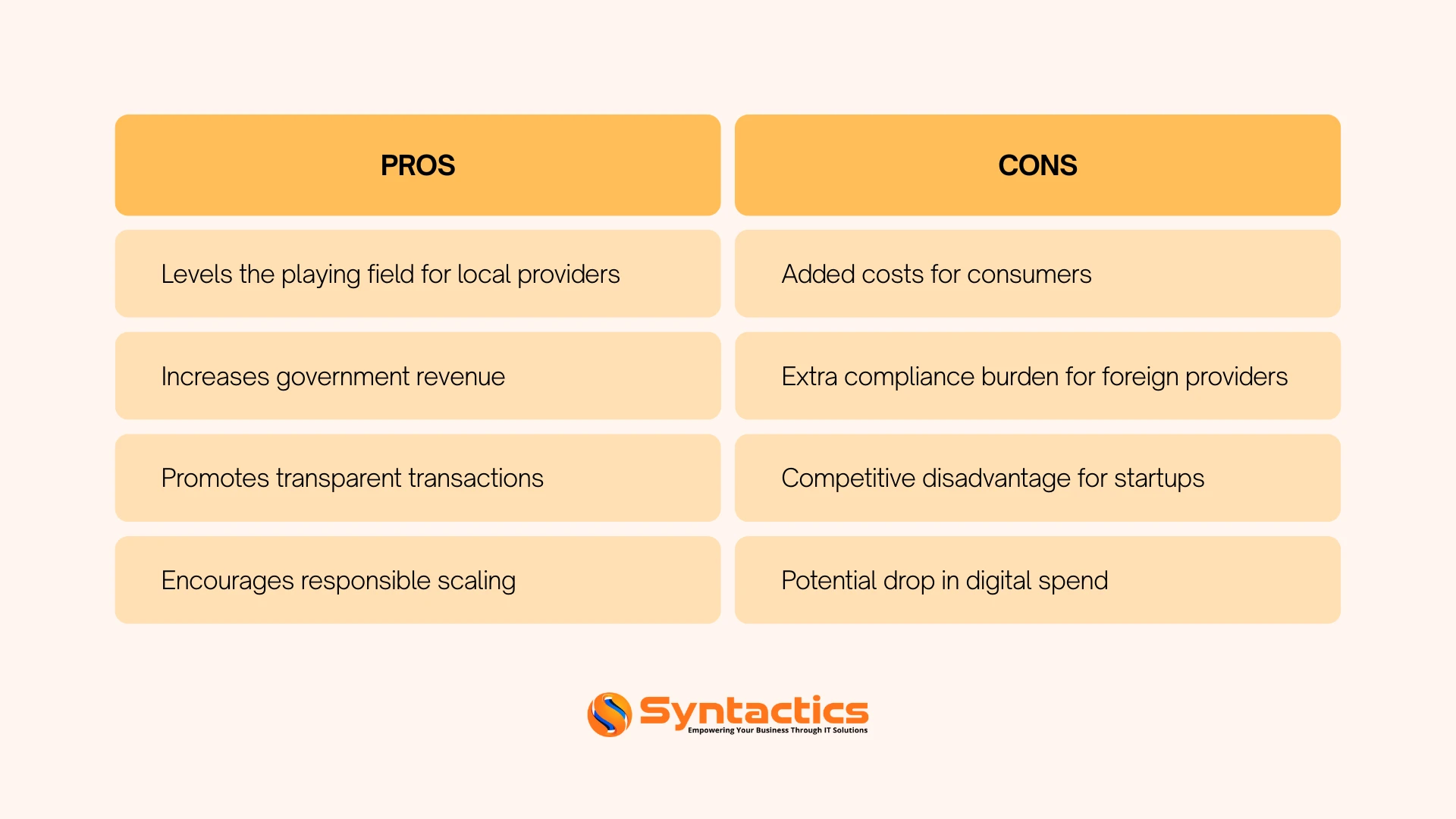
12% VAT on Digital Services and Its Impact on Industries
Get to know the 12% VAT on digital services and learn how it can affect pricing, compliance, and operations across various industries.
Effective June 1, 2025, the Philippines will implement a 12% Value-Added Tax (VAT) on all digital services, following the passage of Republic Act No. 12023. This landmark registration now requires both local and foreign Digital Service Providers (DSPs) to register, charge, and remit VAT on transactions involving customers in the country.
For businesses offering services online, this VAT policy may affect your pricing, compliance, and customer relationships.
What Covers RA No. 12023?
Under this policy, digital services are defined broadly. This law applies to services delivered over the Internet or other digital networks. These include:
- Online media and advertising (Google Ads, Meta Ads, etc.);
- SaaS platforms (Google Workspace, Slack, etc.);
- Online marketplaces (Upwork, Shopee, etc.);
- Cloud storage and hosting (DigitalOcean, Google, etc.);
- Online training platforms (Udemy, Coursera, etc.);
- Mobile apps and other digital goods (Foodpanda, Games, etc.), and
- Streaming services (Netflix, AppleTV, etc.).
Whether you’re a local or foreign DSP earning over Php 3 million annually from Philippine sources, VAT registration is now required.
Check the full context of the 12% VAT policy here: Republic Act No. 12023
How RA No. 12023 Works?
The application of the new VAT policy depends on who your clients are.
For Business-to-Business (B2B) setup, you are not required to charge VAT on the invoice. Your client files this under the reverse-charge mechanism, and can claim it as input tax. If your client is VAT-registered in the Philippines, they are responsible for withholding and remitting the 12% VAT to the Bureau of Internal Revenue (BIR).
On the other hand, Business-to-Consumer (B2C) companies are required to file and remit the collected VAT quarterly via the BIR’s Virtual Digital Services Portal (VDSP). If your client is a non-registered business or individual consumer, you are required to add 12% VAT on top of your service fee.
Impact of 12% VAT Policy on Various Industries
While the purpose of this VAT expansion is to create a level playing field for both domestic and foreign digital service providers, it is also projected to affect many industries.
Below are the pros and cons of this new VAT policy:
Industry-specific Considerations
Fortunately, the impact varies depending on the nature of the digital business. Some sectors may find opportunities in compliance and transparency, while others may experience challenges in pricing and operations.
Here’s a closer look:
Online Media and Advertising (Google, Meta, LinkedIn)
These platforms are now required to charge 12% VAT on ad placements consumed in the Philippines. For B2B clients, VAT is handled through reverse charge, while for individual businesses or small advertisers, the platform adds VAT to the cost.
For advertisers, expect higher ad spend. Marketers and agencies should inform this added cost to clients and adjust budgets accordingly.
SaaS Platforms (Google Workspace, Slack, Zoom, HubSpot)
Foreign and domestic SaaS providers must register with the BIR if they exceed PHP 3 million in gross sales to Philippine customers annually. They also need to file VAT returns and collect 12% VAT on B2C transactions.
As a result, pricing may increase for freelancers, startups, and SMEs using SaaS platforms. For enterprises, reverse charge applies, but the price point may still shift due to administrative adjustments.
Online Marketplaces (Upwork, Fiverr, Shoppe, Lazada)
Although these platforms facilitate third-party sales or services, the VAT obligation may apply either to the platform itself or the sellers. This includes commissions and other fees collected.
Platforms may pass on administrative or tax-related costs to users. Freelancers using Upwork and Fiverr may see adjustments on platform fees or be required to comply with VAT rules themselves.
Cloud Storage and Hosting (Google Cloud, DigitalOcean, AWS)
These infrastructure-based services are B2B-heavy, which means VAT is typically handled through reverse charge. But if a consumer or non-VAT-registered entity uses cloud storage, VAT is collected directly by the provider.
Implications for businesses and developers include:
- Companies should ensure that they properly account for reverse-charged VAT.
- Non-business clients or smaller users may notice a price increase if they pay out of the pocket.
Online Training Platforms (Udemy, Coursera, Skillshare)
Since education is delivered digitally, these services will now fall under the VAT policy, especially for non-accredited providers. If an individual or non-VAT entity in the Philippines enrolls for a course, VAT is automatically collected.
Expect as much as a 12% increase in course fees, specifically for self-paced learning platforms not affiliated with accredited academic institutions.
Mobile Apps and Digital Goods (In-app purchases, Games, Foodpanda)
RA No. 12023 applies to digital goods and services, including those accessed through apps. Delivery apps may pass through platform fees or service charges. Meanwhile, app stores (Google Play, App Store) may automatically include VAT on purchases made in the Philippines.
Users may shoulder slightly higher fees for food delivery, transport, or digital content. For developers selling in-app goods, VAT compliance is now a must.
Online Streaming Services (Netflix, Spotify, AppleTV)
These platforms will directly charge a 12% VAT on subscriptions billed to users in the Philippines. The VAT is typically added as a line item in your monthly bill. Thus, subscription costs will also increase.
Providers like Netflix and Spotify have already implemented these changes in other countries and are likely to do the same in the Philippines.
Final Thoughts
Businesses and consumers alike are required to adjust to the new pricing and compliance dynamics as soon as the new VAT policy is implemented. More than ever, it’s crucial to collaborate with reliable, transparent, and high-performing digital service providers.
Whether you’re investing in digital marketing, custom software, web design and development, working with legitimate providers is a plus factor. It helps you ensure your digital spend delivers real value and keeps you on the right side of the law while prioritizing quality and compliance.
FAQs About Republic Act No. 12023
Who needs to pay the 12% VAT on digital services?
Anyone in the Philippines who avails of taxable digital services, including individuals, businesses, and organizations, must pay the 12% VAT. For foreign providers, VAT applies to B2C transactions, while B2B transactions follow a reverse charge mechanism.
Does this VAT apply to freelancers or small businesses selling online?
Yes, if a seller or freelancer earns over PHP 3 million annually, they are required to register as a VAT taxpayer. They are also charged with a 12% VAT on their digital services or sales within the Philippines.
What happens if a provider doesn’t register or collect VAT?
Non-compliant providers may be penalized under Philippine tax laws. This includes administrative fines or legal consequences for failing to register, file VAT returns, or collect the correct tax.



















Comment 0